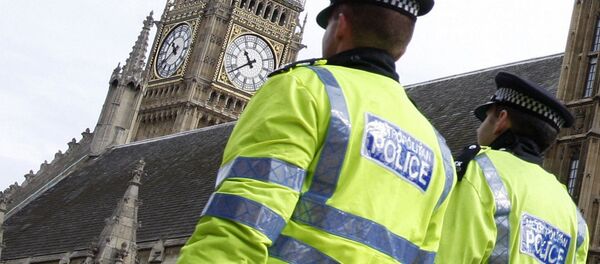Researchers from Cardiff University say this has significant implications for police and policy interventions following a terror attack and that police must act within the first 24 hours to stem the cyber-hatred fallout. Their study revealed that tweets from police and the media were five times more likely to be re-tweeted than other Twitter users.
The academic research focused on the spread of racial and religious cyber-hate and the online social media battle between police and far right political groups in the first 36 hours after the attack on Lee Rigby by Michael Adebolajo and Michael Adebowale.
Dr Pete Burnap from Cardiff University said: "The ability to observe a large portion of the population in near real time via social media networks provides those responsible for ensuring the safety of the public a new window onto mass social reaction".
"Evidence from our research shows that cyber-hate can form part of a social reaction in relation to a terrorist event — therefore, these technologies may act as early warning systems for the amplification of deviance beyond the event itself."
Six thousand UK police officers are currently being put through a 'mainstreaming cyber-crime training course', which covers cyber hate and online harassment.
Today 2013. British soldier #LeeRigby murdered in UK by Islamists. Today 2015. British media seems to have forgotten. pic.twitter.com/KGfn2TkEde
— Hand of GOD (@HandofGOD7) May 22, 2015
But is this enough to meet the ongoing and increasing demand to prevent terrorism in Britain?
The British government's Prevent program, designed to do just that, "prevent terrorism", has been accused of failing. According to the Islamic Human Rights Commission:
"Prevent has not succeeded in staunching terrorism. Reports have concluded that the Prevent regime of attempting to stop young Muslims from being radicalized is not working and is simply alienating Muslims in Britain by serving as a cover for intelligence gathering on the community."
Earlier this year, Baroness Manningham Buller, ex-head of MI5, told the House of Lords that the government's Prevent program is "clearly not working." Baroness Buller said that the decision by over 600 Britons to travel to Iraq and Syria to join Islamic State militants was evidence enough the government program had failed.
As for the murder of Fusilier Lee Rigby, his family have reportedly accused Facebook of having "blood on its hands" after it was revealed that the social networking site failed to inform the authorities of extremist messages written by one of his killers.
A Parliamentary Intelligence and Security Committee report concluded that the murder could not have been prevented, despite outlining missed opportunities by police and security services who had been monitoring the killers for years. The report did however say that the Internet company, later revealed as Facebook, was a "safe haven for terrorists" allowing them to plot attacks.
Michael Adebolajo and Michael Adebowale are in jail for life.





